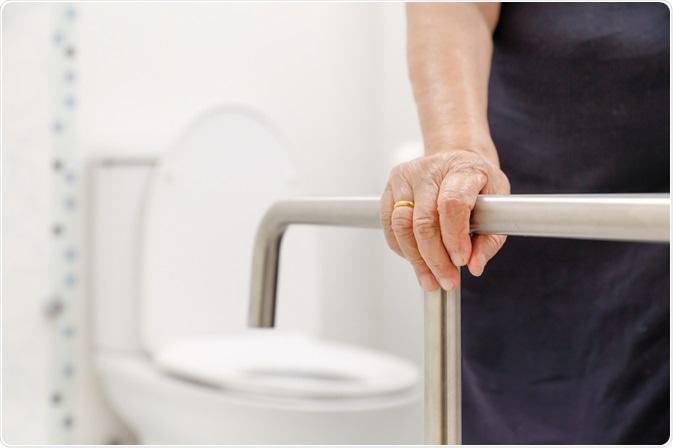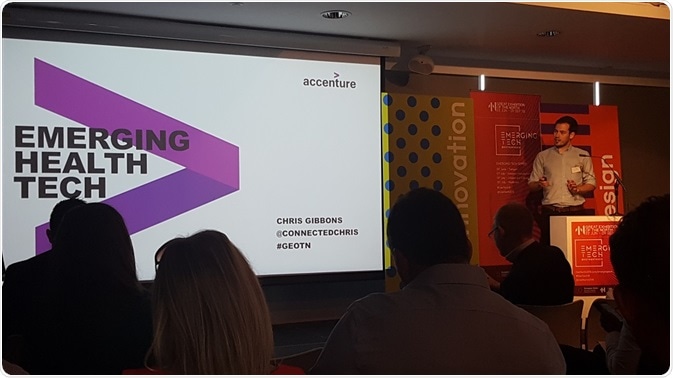The global population has been steadily ageing for the past 100 years and it is now estimated that at least 10% of the people alive today will live to be 100 years old. Despite major advances in technology for the treatment of disease, little has been done to address the changing demographics of today’s society.
Medical advances, in combination with changes in lifestyle, have significantly increased average life expectancies. However, standards and quality of life during the extended years of later life are commonly less than acceptable. Although a range of health support mechanisms are available, they are under increasing pressure.
A recent workshop, part of Great Exhibition of the North and held as part of Project GX, a project which aims to help small businesses in the North of England develop their innovation capacity, explored ways in which new technologies can be applied to address the demands of an ageing population.
Technology as an enabler for the elderly
Graham Armitage of The National Innovation Centre for Ageing explained that technology is a key enabler for bringing equality for elderly people.
 Image Credit: Toa55 / Shutterstock
Image Credit: Toa55 / Shutterstock
Through 20 years of research into ageing, it is known that relatively simple adjustments can markedly enhance mobility, housing and quality of life for the elderly. Minor adaptations, such as hand rails, can enable older members of society to remain in the home they love for longer and be happier.
Despite the potential for such simple solutions to enhance the lives of the elderly, Katie Gilmartin of Home Group explained that the majority of the ageing population are living in homes that are not fit for purpose.
It has been estimated that poor housing costs the NHS in excess of £600 million every year, and many of the aids provided are based on old designs, which were not informed by the end-users. Furthermore, clumsy and ugly modifications, which ruin the appearance of a home that has been well cared for over many decades, are still considered acceptable solutions.
Now, an ongoing project is exploring user-led design solutions to enable people to enjoy living in their own home for longer.
Reducing social care costs through AI
Chris Gibbons from the global technology company Accenture demonstrated how available technology can be adapted to improve the lives of elderly people living at home and reduce the level of social care they need.

Using an existing digital platform, Accenture have developed a user-friendly interface through which the elderly enjoy interacting with the modern digital age that the younger generations take for granted.
The system, which is voice activated and talks back to the user, facilitates the use of online banking and online shopping, allows video calls and photograph sharing with friends and family, gives reminders to take medication, eat lunch, lock doors etc, and provides a form of much-needed company.
Similarly, Harry Ronchetti of Hedgehog Labs illustrated how virtual and augmented reality technologies can be used to enrich the lives of elderly and disabled individuals by enabling them to once again experience (virtually) activities they loved but in which they are no longer able to participate, such as scuba diving and mountaineering.
Improving mobility
Elaine Hall and Becky Eskandari of Podfo presented a series of case studies in which their 3D-printed orthotic insoles had increased the mobility of people with joint pain.
For example, a 70-year-old woman on the waiting list for hip replacement surgery was forced to stop activity after a matter of minutes because of excessive pain.
After in depth biomechanical assessment and gait analysis, she was provided with custom-made insoles to promote joint alignment. A matter of months after starting to use the insoles, she was able to remain active all day without movement-limiting pain.
This led to her orthopaedic consultant no longer considering hip replacement surgery to be necessary.
Perspectives
Almost two thirds of the population growth will be among people of pension age until 2039. Since more support and social and medical care is typically needed as we age, it is important that we make the most of the technologies available to us and embrace innovations that will help reduce the pressure on resources from an ageing population.
It is for reasons such as this that Innovation SuperNetwork is striving to connect small innovative businesses with the funding and expertise they require to make a difference.
For more information, visit: Get North 2018